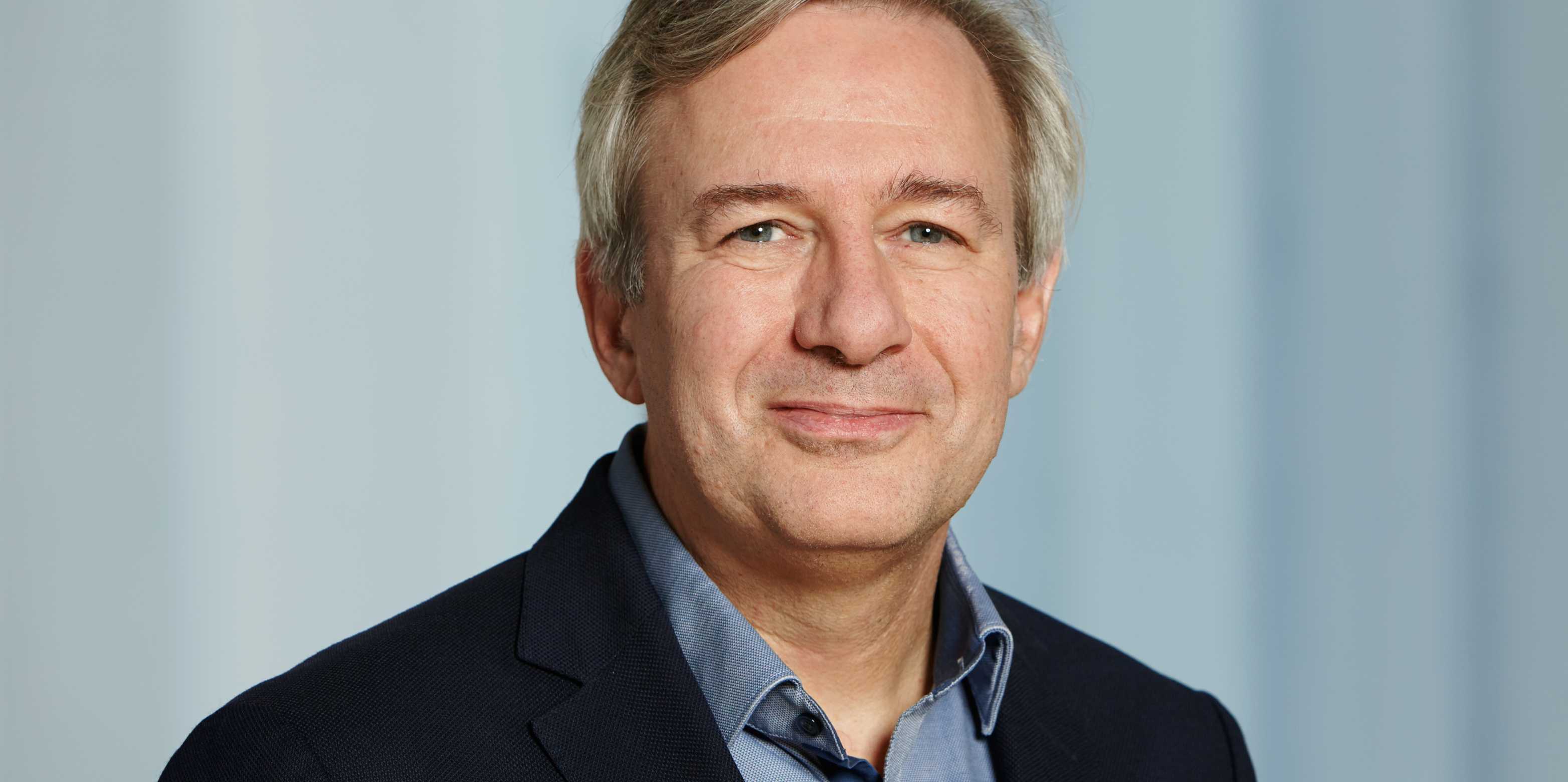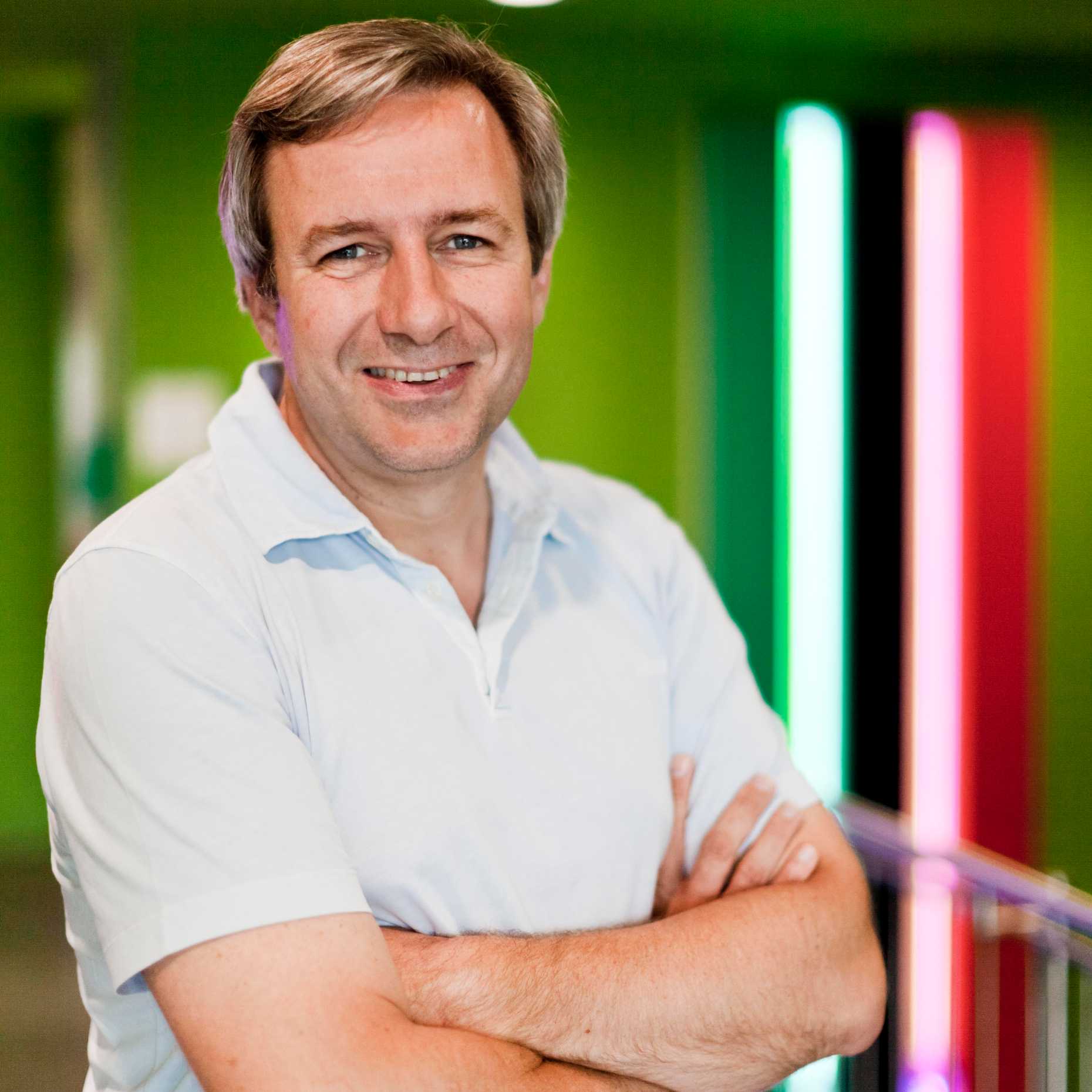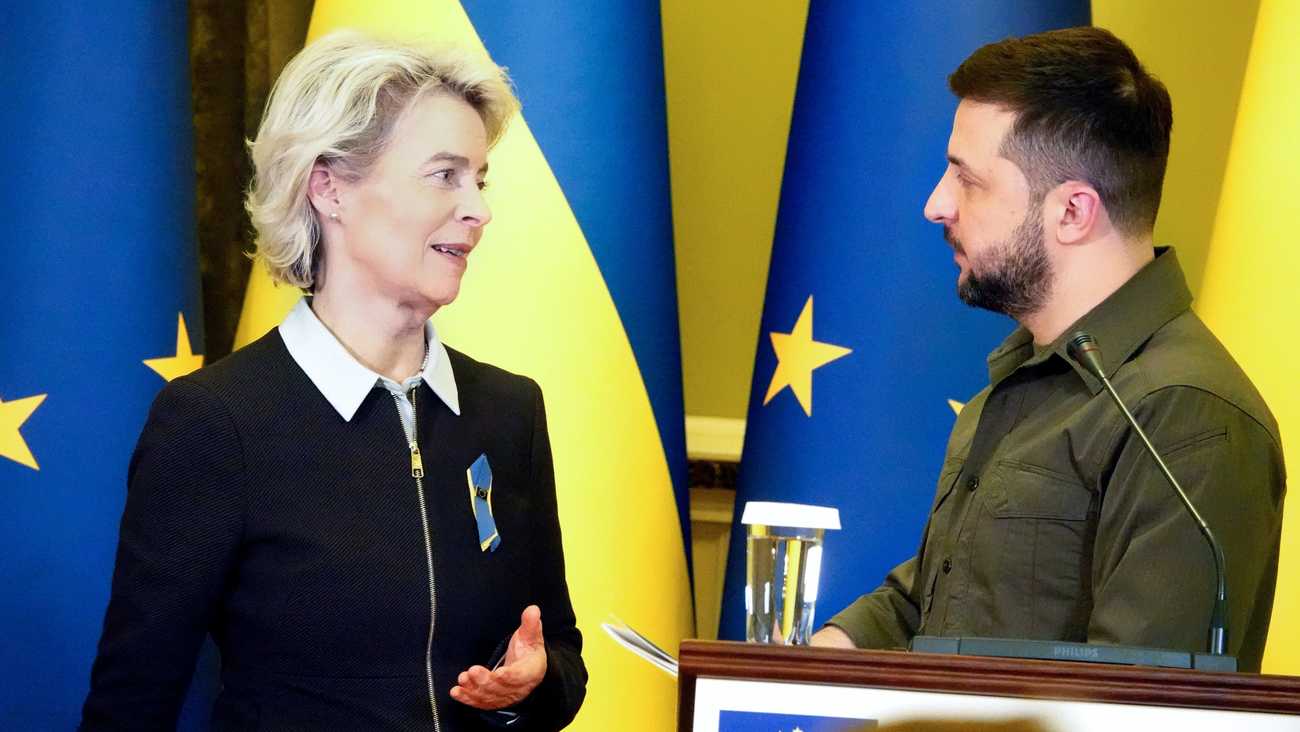In an interview with ETH News, ETH Zurich Professor Frank Schimmelfennig analyses how the war in Ukraine is affecting the European Union and whether Ukraine is likely to be granted membership.

Last Sunday, Emmanuel Macron was elected to a second term as President of France. How important is this for the European Union in the current climate?
Frank Schimmelfennig: A win for Marine Le Pen would have sent the EU careening into a severe crisis, because she indicated that she would roll back France’s European integration. It also would have weakened the West’s united front with respect to the war in Ukraine. Macron’s reelection allows the EU and NATO to continue their policies regarding Russia.
The EU has imposed extensive sanctions on Russia, opened its borders to Ukrainian refugees, and financed both the sale and the supply of arms to Ukraine. How stable is this position?
It appears to be very stable. The pivotal factor in the EU presenting a united front is for its member states not to be run by right-wing populist governments that sympathise with Putin. That’s why President Macron’s election victory was so important.
Are there factors that make it harder to present a united front?
The degree of dependency on Russian oil and especially gas varies greatly among the different EU member states, which is a source of conflict in discussions about expanding sanctions. But really it’s less about exactly where we’re heading and more about how long it will take to get there.
Crises have always acted as a catalyst for European unity. How will this war change the EU?
I don’t agree at all with the notion that crises will lead the EU, slowly but surely, to becoming one federal state. Rather, the EU responds to crises by taking small steps and a very targeted approach to problems. But it’s clear that the EU is capable of improving its crisis management. During the euro crisis, it took several years for effective crisis policy to emerge; during the migrant crisis it took months, during the coronavirus crisis weeks and for the Ukraine crisis just days.

“Considering the moral pressure, it will be difficult for the EU to deny Ukraine a promise of membership.”Frank Schimmelfennig
Can you expand on that with respect to Ukraine?
The European Commission has been coordinating EU sanctions policy from the very beginning, because this had already proved effective following Russia’s annexation of Crimea. Moreover, during previous crises the EU created a whole range of special budgets and mechanisms that are now providing it with more room for manoeuvre.
Such as?
Supplies of weapons to Ukraine were financed though the European Peace Facility. Established in 2021 to enhance the EU’s ability to prevent conflicts and build peace, this fund was suddenly repurposed, without member states having to pledge any new money. When it comes to refugees, guidelines enacted in 2001 were applied for the first time to provide a swift and unbureaucratic way of accepting refugees that sidestepped the regular asylum process.
That sounds rather like skirting the issue. So the hopes of some observers that the Ukraine war would now finally lead to closer collaboration on security and defence policy are unfounded?
The EU will focus on the tasks for which it has the expertise and resources, namely economic and energy policy. It’s possible that members will collaborate more closely on the procurement of arms. But the EU isn’t heading towards forming a European army or becoming a functioning defence alliance like NATO.
What is the current relationship between the EU and NATO?
Collaboration and worksharing between the EU and NATO has become much more intensive. While NATO is taking the lead in terms of a military response to Russia’s war of aggression, the EU is focusing on coordinating sanctions among member countries and with the United States.
And still, President Macron never grows tired of emphasising that the EU ought have more autonomy when it comes to security policy. Is this all a bit pie in the sky?
The war clearly shows that the EU is still massively dependent on the US for its defence. Eastern European members in particular, which feel directly threatened by Russia, don’t look to the EU for their security, but rather to NATO and thus the US. As long as the transatlantic relationship remains intact, that’s not going to change. So the EU would be well advised to maintain a functioning relationship with NATO.

Ukraine wants to join the EU. How realistic a prospect do you think this is?
The EU has been very coy about explicitly promising that membership will be granted, but the moral pressure to do more is rising. Opinion within the EU is very divided as to whether Ukraine should be allowed to join.
Why’s that?
Even before the war, Ukraine struggled with corruption and oligarchical structures. It also had shortcomings as regards the rule of law. The EU is particularly sensitive to such matters given its past experience of eastward expansion. Then there’s the fact that we don’t know what state the country will be in once the war is over. Reconstruction will tie up considerable resources. It’s also likely that territorial conflicts with Russia will smoulder on and erupt from time to time. In the past, the EU has taken in only countries that were at peace, or – as in the case of Cyprus – in a stable frozen conflict.
So von der Leyen’s positive response to Ukraine’s membership bid was merely an act of tokenism?
This response should really be taken within the context of the extremely morally charged situation. The EU wouldn’t have the means to ensure the security of Ukraine. Eastern European countries always first joined NATO and then the EU. The logic was to first enter a context framed by stable security policy, before then setting out on the arduous and ambitious journey that leads to the EU. So EU membership should in no way be seen as an alternative to joining NATO, or as some kind of consolation prize.
Does the EU run the risk of creating expectations within Ukraine that it will not be able to honour later on?
This is a very real risk. The EU has to be careful not to fall into a “rhetorical trap”. Considering the moral pressure, it will be difficult for the EU to deny Ukraine a promise of membership. In the best case, this will lead to a protracted accession process. In the worst, the EU will at some point have to dash Ukraine’s aspirations, which might lead to reproaches on both sides. The stagnation of efforts at expansion in the western Balkans and Turkey’s moribund accession process are cautionary examples.
Finally, let’s turn briefly to Switzerland’s relationship with the EU. How is the war affecting this?
In light of the current threat, it’s conceivable that Switzerland will align its security policies more towards those of the EU and NATO. But this question is separate from the existing disputes between Switzerland and the EU, which range from research collaboration to institutional issues. Right now, the EU has even less time and patience to deal with Swiss demands. And for its part, Switzerland shows little sign of taking a step in the EU’s direction.
Frank Schimmelfennig is Professor of European Politics at ETH Zurich
Solidarity with Ukraine
ETH Zurich condemns the acts of war in Ukraine and supports affected students and researchers. Here you can find the current support being offered by ETH Zurich.
